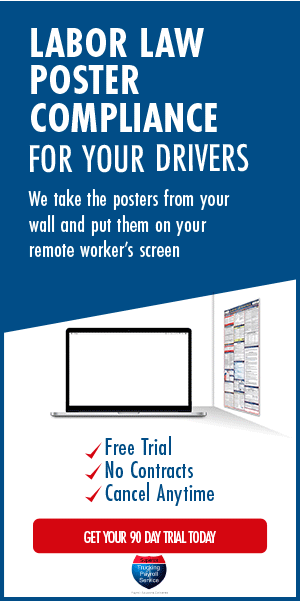How do I fire my truck driver?
I’m sure that you would agree that firing your truck drivers can be an awkward, unpleasant experience. This is why we have created this guide to help you with the process so that you don’t have to worry about a potential wrongful termination lawsuit. This article will explain the steps you should take when firing a truck driver, as well as some tips to make it go as smoothly as possible.
Do your research
Most states have “at-will employment” laws, which allow employers to terminate employees without explanation or warning unless specific terms were laid out in the hiring contract. Federal law prohibits firing an employee for certain specific reasons like discrimination or retaliation, so it’s important to do your research before moving forward with a termination.
Exceptions to at-will termination
Depending on what state you’re in, there are certain exceptions to state at-will employment laws.
Just Cause: If you put company guidelines in place or offer assurances to employees that they can only be fired for “just cause”, this counteracts your right to at-will termination and you can be sued.
Public Policy: In 42 states plus Washington, D.C., it’s illegal to fire an employee for behavior that’s protected by public property or statute, like reporting workplace safety hazards.
Covenant of good faith: In some states, companies can be sued for termination “in bad faith”, an example of this would be terminating an employee to avoid paying retirement benefits.
Federal termination laws
In addition to state laws, there are federal laws that prevent employers from terminating employees for specific reasons. This is why it’s important to remember to keep records leading up to the termination of an employee in case you need to refute accusations of wrongful termination.
Discrimination: Federal law makes it illegal to fire an employee due to things like the employee’s race, gender, disability, religion, age, pregnancy status, or immigration status. Some states have additional protections for sexual orientation and marital status.
Retaliation: It’s illegal to fire an employee in retaliation for engaging in any legally protected activity like reporting a workplace violation, complaining about discrimination or harassment, or taking legally-protected family leave.
Refusal to take a lie detector test: It is illegal for most employers to fire an employee for refusing to take a lie detector test, and in many states, it’s illegal to administer polygraph tests in general.
Establish standards
Treating your drivers with empathy, even throughout the termination process, will garner respect from your remaining staff and peers in the industry. However, this will also prevent the likelihood of an extreme negative reaction, a lawsuit, or violence from the driver being fired.
It is important to start putting things in writing at the first sign of trouble with your truck drivers. For example, document direct feedback about the issue addressed to the driver in question. Also, remember to voice your concerns and state explicitly that failure to correct the issue will result in termination.
Break the news in person!
One of the worst things you could do would be to terminate your truck driver over email or text message. An in-person meeting is more respectful to the driver and it allows you to break the news more gently which could prevent an extreme negative reaction. If your driver is on the road too much, or lives in a different state, try to arrange a web call with video so that you can deliver the news face to face. As a last resort, a personal phone call is better than doing it via email.
Keep it simple!
Try to follow these key points:
Inform the driver that they are being terminated and explain that you can answer any questions that they might have, but that your decision is final.
Explain the reason for termination, and recap the steps that were taken to try to solve the issue.
Let them know about next steps like collecting personal items, and returning company equipment.
Answer any questions that the driver may have.
Thank the driver for the time and good work that they have invested in your company, wish them the best, and end the meeting.
Tip: If the driver becomes agitated try to diffuse the situation and not argue with them. And NEVER discuss potential litigation without a member of your legal team, or a lawyer, present.

Written by mike Ritzema
With over 20 years of experience in entrepreneurship, management, business planning, financial analysis, software engineering, operations, and decision analysis, Mike has the breadth and depth of experience needed to quickly understand entrepreneurs’ businesses and craft the most suitable solutions.

